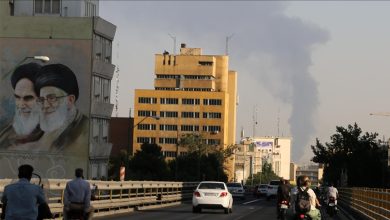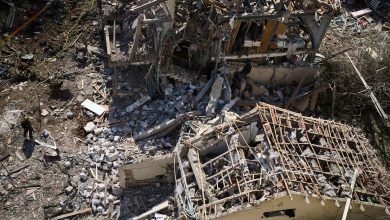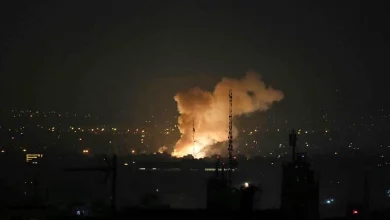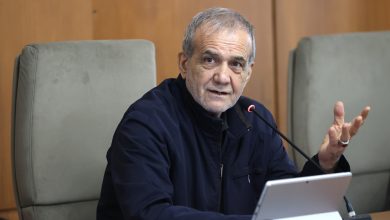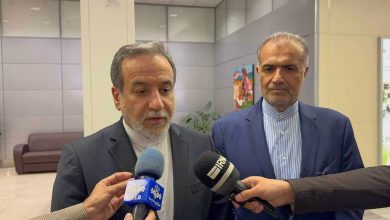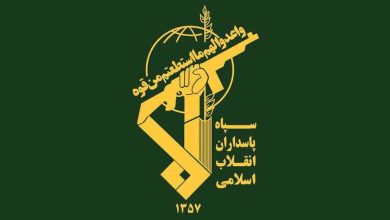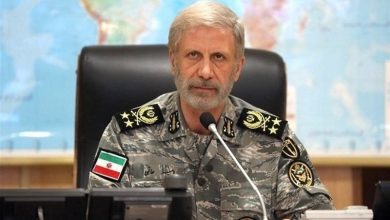Great Satan US Faces Global Criticism as Washington Vetoes Gaza Ceasefire Vote
The United States has taken a solitary stance by blocking a United Nations Security Council resolution that called for a permanent ceasefire in Gaza, as well as a comprehensive Israeli withdrawal from the region, which has been devastated by approximately 20 months of conflict with Israel.
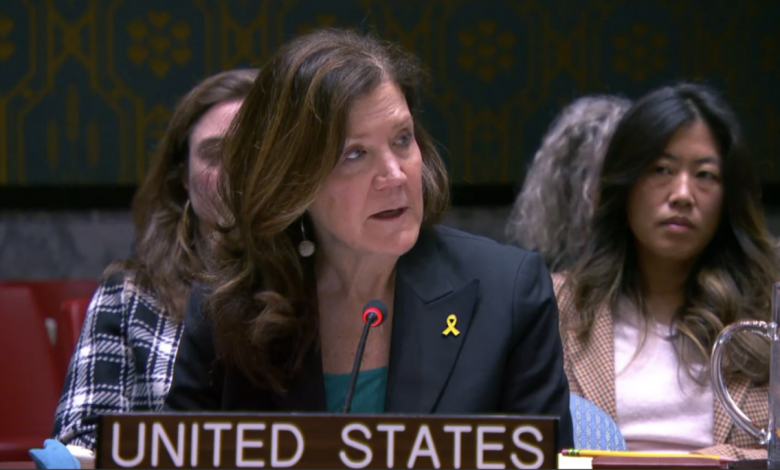
A resolution was presented for a vote on Wednesday, seeking the implementation of an immediate, unconditional, and permanent ceasefire in the Gaza Strip.
The United States exercised its veto power contrary to the affirmative votes of the United Nations Security Council’s other 14 member countries.
The resolution, co-sponsored by ten elected members of the Council, aimed to achieve an “immediate and permanent” cessation of hostilities that have thus far resulted in the deaths of at least 54,510 Palestinians, predominantly women and children.
The call also included the restoration of humanitarian access and critical services throughout the devastated region, which has been concurrently subjected to an almost complete Israeli blockade.
The draft proposal, if implemented, would have backed continued diplomatic initiatives to establish a phased ceasefire strategy, entailing the pullout of Israeli troops and the commencement of rebuilding efforts.
The Hamas resistance movement in Gaza expressed its readiness to cooperate within an established framework. However, this framework disintegrated when Israel resumed actions that have been characterized as genocidal. Subsequently, no new structure was put in place, largely due to Tel Aviv’s lack of adherence to diplomatic initiatives.
Ahead of the Wednesday vote, Acting U.S. Ambassador to the United Nations, Dorothy Shea, criticized the resolution as “unacceptable,” denouncing both its substance and the method by which it was introduced.
The United States has unequivocally stated that it will not endorse any measure that does not explicitly condemn Hamas and call for its disarmament and withdrawal from Gaza, she stated.
A diplomat reaffirmed the United States’ designation of the Palestinian resistance movement as a “terrorist” entity, a label given as the group continues its long-standing opposition to persistent lethal actions by the Israeli regime, which has consistently enjoyed robust political and military backing from the U.S.
The diplomat stated that Hamas had turned down multiple recent ceasefire proposals. Among them, she noted, was one proposal that could have facilitated the release of Israeli captives still held in Gaza and potentially brought an end to the ongoing conflict.
The assertion, previously articulated by the United States’ regional envoy Steve Witkoff, directly contradicted the movement’s actual response to the proposal.
Shea once again emphasized Washington’s demand for the elimination of Hamas from Gaza, citing Secretary of State Marco Rubio’s remark: “If an ember survives, it will spark again into a fire.”
In the midst of an exponentially worsening humanitarian crisis in Gaza, the vote took place.
UN agencies have issued a stark warning about an impending famine, an almost complete breakdown of the healthcare system, and the mass displacement of a significant portion of the territory’s population.
UN Emergency Relief Coordinator Tom Fletcher expressed deep concern, stating that global attention is focused on the tragic and continuous sights of Palestinians in Gaza suffering injuries or fatalities while attempting to carry out basic activities, such as eating.
He alluded to a newly-introduced “aid distribution system” spearheaded by the United States and Israel, which circumvents traditional humanitarian organizations.
The system has faced criticism for its inability to adequately assist those in need, with reports indicating that Israeli forces have fatally shot Palestinians as they attempted to gather aid supplies.
**Hamas’ Response**
In the aftermath of the vote, Hamas vehemently denounced the United States’ decision, labeling it as evidence of America’s unwavering favoritism towards the regime in every circumstance.
The movement stated that the American veto served as an endorsement for ongoing Israeli strikes against civilians.
The group has issued a statement asserting that the U.S. veto illustrates what they perceive as a partisan stance by the American administration towards the occupation government, alleging its backing for human rights violations in the Gaza Strip.
It criticized the United States for opposing the consensus of the international community, disregarding international law, and facilitating a destructive conflict involving Israeli forces led by Prime Minister Benjamin Netanyahu, who is subject to an arrest warrant issued by the International Criminal Court.
The movement has strongly criticized the United States for disseminating misinformation and obstructing Palestinians’ pursuit of self-determination.
Amid ongoing conflict, Hamas has cast doubt on the reliability of international bodies, criticizing their inability to halt the war or secure access to essential food and aid nearly two years into what they describe as genocide.
The statement criticized the United Nations Security Council’s inability to halt a prolonged twenty-month genocide, casting doubt on the role of international community institutions and the efficacy of international laws.
Series of Vetoes
On Wednesday, the United States exercised its veto power for the sixth time against a Gaza-related ceasefire resolution since the conflict was initiated in October 2023.
The United States has attempted to rationalize its actions regarding these resolutions by asserting that they did not effectively hold Hamas accountable or sufficiently safeguard the Israeli government’s “security interests.”
In a comparable action on November 20, 2024, the United States exercised its veto power against a resolution advocating for an immediate and unconditional ceasefire, citing concerns that the measure failed to guarantee the release of Israeli hostages.

